
In 2022, the Wilson surname was the 3rd most Scottish popular name and one of the most common in Britain. Although it is among the most popular surnames, you should not presume that it is Scottish in origin. Nevertheless, I have still included it in our list of Scottish surnames.
Wilson Last Name Origin
Since the Wilson last name can be found in many countries today, its early Scottish origins for the most part can be traced to Norse descent. There was once a 9th century Norse prince called Wolf and his descendants settled in the Orkney Isles. For this reason, the Wilson name is a corruption of ‘Wolf’s son’. Accordingly any Wilson coat of arms with a wolf on it, is an indication that the family is descended from the Prince.
Evidently, the English Wilsons are of Norman ancestry. From Yorkshire, Robert Willeson of the Manor of Wakefield may have been the first person recorded with a variation of the Wilson surname in 1324. The first formal use of the Wilson surname came in 1341 when Robert Wilson was found in the records of the Cistercian Abbey of Kirkstall, Yorkshire. In the neighbouring county, John Willison’s name was identified in the Lancashire Subsidy Rolls in 1366.
Wilson Name Meaning
It is basically derived from the first name William, meaning ‘Will’s son’. The surname was introduced to England through Norman influence in the second half of the 11th century. It was also introduced to Scotland through Norse influence. From these origins, the Wilson surname became popular in the UK.
History of the Wilson surname
There are apparently 2 Scottish lines of Wilsons associated with clans:
- from Caithness who were descended from William, a son of George Gunn, Coroner of Caithness. In addition,
- from Banffshire who were linked by marriage with the Innes family of Littlefield.
Both lines are considered as a Sept. Nevertheless, the Wilson name did appear earlier in the Scottish Borders when John Wilson was a burgess in Berwickshire in 1467. The name was well established in Lanarkshire, Ayrshire and Stirlingshire by the 18th century.
Variations of the Wilson Surname
The popularity of William as a first name gave rise to many distinct lineages in Scotland. Depending on dialect, the name also assumed many other forms. For example, notable variations include Willson, Willsone, Wilsonne, Wolfson, Wilfson, Wilsoun, Wolsoun, Wylsone and others. Some variants could be older than others but the differences are only in the spelling, since someone might spell their own name in more ways than one.
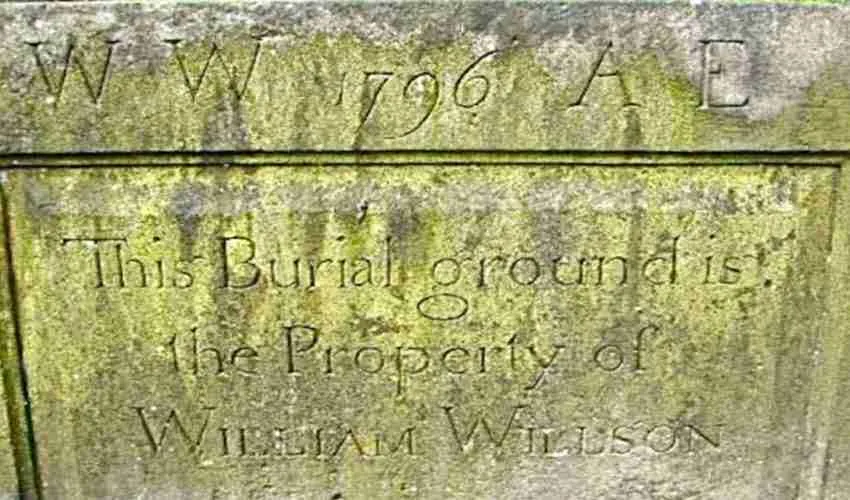
The Wilson Tartan and Crest
This Wilson tartan was named after Janet Paterson, wife of the Bannockburn weaver, William Wilson. He created tartans from the late 18th century and the family business continued until the early 20th century. Apparently, according to the family’s archives, this tartan was created for their wedding in 1780 and was later introduced as the Wilson family tartan.
Some Notable Wilsons
- Labour Prime Minister Harold Wilson had northern roots and, apparently, an aristocratic opponent with long ancestry once poked fun at him about his lack of family history. However, the prime minister’s family history revealed that his ancestry was equally old.
- James Wilson (1742-1798) was born in Ceres, Fife, before emigrating to America in 1765. He was a signatory of the American Declaration of Independence.
- Charles Thomson Rees Wilson (1869-1959) invented the Cloud Chamber, a tool for particle physics. He was awarded the Nobel Prize in 1927.
- George Wilson (29 April 1886 – 22 April 1926) was a Scottish recipient of the Victoria Cross for capturing a hostile machine gun nest during WWI in France. Born in Scotland, he died at the age of 39 and is buried at Piershill cemetery in Edinburgh.
- American President Woodrow Wilson was awarded the 1919 Peace Prize as the main architect of the League of Nations to ensure world peace after World War One.
- George Wilson (1803 – 1874) was one of the first settlers at Mount Seymour in Tasmania. Born in West Lothian, Scotland, George, arrived in Tasmania in 1832 with his brother. His descendants became prominent Tasmanian citizens involved in farming and politics.
Miscellany
The 1689 story of the Martyrs of Wigton is about a group of people who refused to take the Oath of Abjuration. They chose to follow the Covenant faith of Presbyterianism. One of them was a young woman called Margaret Wilson who was aged about 18. She was captured and imprisoned for refusing to take the oath and for attending illegal ‘conventicles’ to hear prayers and sermons. Consequently, she was found guilty and killed by drowning “being tied to palisades fixed in the sand and there to stand until the tide overflowed her.” She became known as one of the Wigton Martyrs.
If you are needing some help with your Wilson family history, then feel free to get in touch or leave a comment below.
Good luck in tracking down your Wilson family history.
Until my next post, mar sin leat as we say in Scots Gaelic for ‘goodbye’.
You may also like...

The Baird Surname: Meaning, Origin and History
The Baird surname is an old Scottish name that dates back to the medieval period. It comes from the Gaelic word ‘bardd’ meaning minstrel or bard.
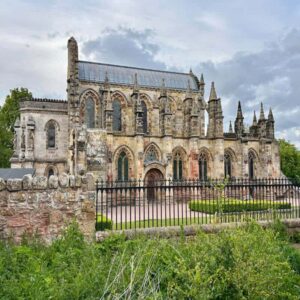
Roslin Village: Its History and Heritage
Roslin village is known for its chapel and castle, attracting genealogists, historians, and visitors interested in its past.
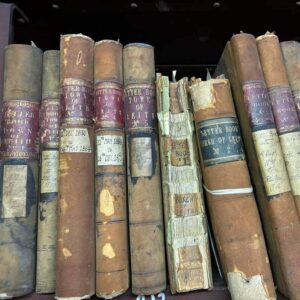
Celebrating International Archives Day
International Archives Day is on the 9th of June. It is an opportunity to recognise the value of archives in preserving our history and identity.
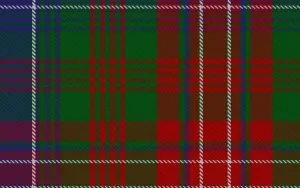
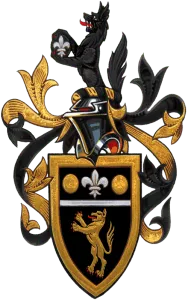
trying to find more info on Gown Wilson my ancestor’s someone got as far back as Lisa Wilson as a Princess , we also loaded the mayflower ship
.
Thank you for sharing your family history. Considering the significance of the Mayflower connection and the uniqueness of the name Gown Wilson, it would be interesting to see the passenger list for the Mayflower. Also, I wonder whether there could be other spellings for Gown such as Gowan or Gowen which may help with your research. Providing the geographical location of the Wilson family could also help with your research. Please email me if there is something specific I can help with and we can take it from there.
Thanks
IAM whip Wilson DNA match my dad s Norman Wilson family Al’s
I’m a Wilson Heather Bonnie Wilson my grandfather was Thomas Wilson Sr and his wife was Elizabeth Joyce Wilson and they lived in Scotland but not sure we’re .my uncle and aunt were born there .Buty dad was born in pennsylvania.my grandfather was born in Glasgow England I believe
Hello Heather
Do you know your grandmother’s maiden name? Also, did your grandfather have a middle name? Their names may be clues to find out where they lived. Alternatively, your uncle and aunt’s full names will help too. Email me on sarah@unlockyourpast.co.uk if you want to share the information.
I am trying to find Katherin Wilson. She came over on The Paule in 1635 with her two children Robert and Richard. There is no mention of her husband or a maiden name for her. I am trying to pick up her life before coming to Virginia. Any help would be greatly appreciated.
I found their names on the Paul passenger list with their ages. If they were Scottish, I would search the birth/baptism records on the ScotlandsPeople database and see if there was a Robert and Richard born between 1625 and 1635 with mother Katherine and surname Wilson – I would also use the phonetic spellings options for the names. If they were born in English then its harder because you need to know the county/region they came from. Contact me if you need me to do any research.
Hi! Looking for more info- spouse or burial location on Henry Wilson born in Wilsontown Scotland and lived/ worked in London. born 1774 or 1794. Son of William Wilson and Mary Etherington. William is a founder of Wilsontown. Thanks!
Hello Karen
I had not heard of Wilsontown until today – the birthplace of the industrial revolution apparently – amazing! From what I understand from http://www.forthdistrict.co.uk/villages-history/wilsontown.html, William settled in London. He married Mary Etherington in London in 1768 so Henry may have been born in London. I would focus the search in London in the first instance, using Ancestry, FindmyPast or Familysearch. Boyd’s Marriage Index sometimes includes the groom’s father’s name as a clue. If all that fails, I would contact a local genealogist from London – you can find one here https://www.qualifiedgenealogists.org/. Alternatively, if you have an account with Ancestry, then I would contact other people who have researched your Wilson family and start a dialogue with them.
Hope that helps – good luck with your search 🙂
Sarah
My moms parents came over to Mexico to settle (from Scotland) as preachers of god ,
Wilson’s in Northern Ireland are Ulster Scot’s, part of the plantations of the early 17th century. Are there any records of where in Scotland they came from?
Thank you for your comment—yes, many Wilsons in Northern Ireland are indeed of Ulster Scots origin, and it is very likely their ancestors came over during the Plantation of Ulster in the early 17th century.
Unfortunately, detailed records of exactly where individual settlers came from in Scotland are limited for that early period. However, some surviving sources—such as muster rolls, land grants, and estate papers—can sometimes offer clues.
The surname Wilson was common across Lowland Scotland, especially in Ayrshire, Lanarkshire, and the Borders, so those are regions to keep in mind when exploring further.
Hope this helps, Sarah